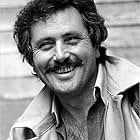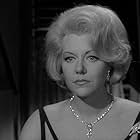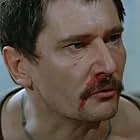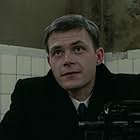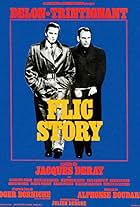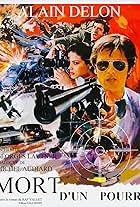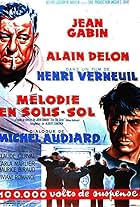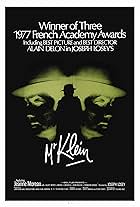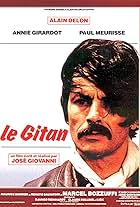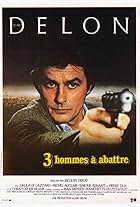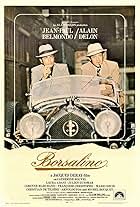IMDb RATING
7.3/10
5.3K
YOUR RATING
A former bank robber is released after 10 years in prison. He gets help from a social-worker, but gets harassed by an old cop from his past.A former bank robber is released after 10 years in prison. He gets help from a social-worker, but gets harassed by an old cop from his past.A former bank robber is released after 10 years in prison. He gets help from a social-worker, but gets harassed by an old cop from his past.
Malka Ribowska
- L'avocate de Gino
- (as Malka Ribovska)
Storyline
Did you know
- TriviaThis movie was part of a campaign against death penalty in France that took place in the 1970's. Director José Giovanni was sentenced to death in 1945 right after the war and was pardoned by the then French president. Ten years later, after completing his sentence he became a writer, screenwriter and movie director. Death penalty was finally abolished in France in 1981.
- ConnectionsFeatured in Adam & Yves (1974)
Featured review
This is an interesting film in structure, as the main conflict doesn't even present itself until almost 40 minutes into the film. Up until then, it's a very nice story about an ex-con (Alain Delon) and his good friend--a social worker who befriended him in prison and has worked to help rehabilitate him (Jean Gabin). However, even though Delon is doing a great job on his parole (even after tragedy strikes)and is living an honest life, an old cop who arrested him a decade earlier has decided that it's his mission to PROVE that Delon didn't change and is just another con waiting to show his true colors! And so, doggedly, the cop seems determined to push Delon until he forces his to turn bad.
While the parallels are not perfect and the setting has been updated to modern France, this sure seemed like a reworking of the classic Victor Hugo story "Les Misérables". Like the leading man from the novel, Jean Valjean, Delon's character has changed after leaving prison and is committed to doing right. And, like Javert, the cop who suddenly enters his life will stop at nothing to prove that a man like Delon CAN'T change despite all appearances to the contrary. So, the cop harasses the man's employer, his girlfriend...any one and everyone. He brings Delon in for interrogations and pushes the man unmercifully--so much so that you assume sooner or later Delon will snap. What happens next is a bit of a shock--and makes for an exciting finale and a very compelling film.
It's interesting, by the way, that the bad cop is not the only thing in the system that conspires to keep criminals criminals. Other than Gabin, the rest of the prison officials in the film seem like reactionaries--who unintentionally perpetuate the problems through their stupidity. While this is somewhat of an over-simplification, I like this angle, as prison officials often do make the problems worse (I used to work with the prison system like Gabin's character and was amazed at how corrupt or dumb some of these men were--including come guards who were simply sadists). It's a novel approach (aside from the Hugo novel) and made the film quite compelling. Plus, it humanized Delon so much that you hurt for him and really were rooting for him throughout the film.
While the parallels are not perfect and the setting has been updated to modern France, this sure seemed like a reworking of the classic Victor Hugo story "Les Misérables". Like the leading man from the novel, Jean Valjean, Delon's character has changed after leaving prison and is committed to doing right. And, like Javert, the cop who suddenly enters his life will stop at nothing to prove that a man like Delon CAN'T change despite all appearances to the contrary. So, the cop harasses the man's employer, his girlfriend...any one and everyone. He brings Delon in for interrogations and pushes the man unmercifully--so much so that you assume sooner or later Delon will snap. What happens next is a bit of a shock--and makes for an exciting finale and a very compelling film.
It's interesting, by the way, that the bad cop is not the only thing in the system that conspires to keep criminals criminals. Other than Gabin, the rest of the prison officials in the film seem like reactionaries--who unintentionally perpetuate the problems through their stupidity. While this is somewhat of an over-simplification, I like this angle, as prison officials often do make the problems worse (I used to work with the prison system like Gabin's character and was amazed at how corrupt or dumb some of these men were--including come guards who were simply sadists). It's a novel approach (aside from the Hugo novel) and made the film quite compelling. Plus, it humanized Delon so much that you hurt for him and really were rooting for him throughout the film.
- planktonrules
- Feb 28, 2011
- Permalink
- How long is Two Men in Town?Powered by Alexa
Details
- Release date
- Countries of origin
- Language
- Also known as
- Two Against the Law
- Filming locations
- Montpellier, Hérault, France(on location)
- Production companies
- See more company credits at IMDbPro
- Runtime1 hour 40 minutes
- Sound mix
- Aspect ratio
- 1.66 : 1
Contribute to this page
Suggest an edit or add missing content














